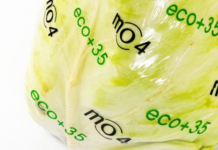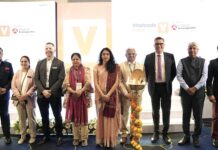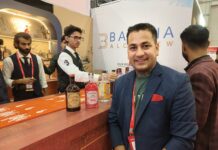
With climate change threatening coffee cultivation, Nestlé experts are exploring how advanced data science and artificial intelligence can be leveraged to help select and breed more climate-resilient plants.
While more than 120 species of coffee exist, around 70% of the world’s coffee production is arabica. However, arabica has a lower tolerance to rising temperatures and is more susceptible to disease than other coffee plants, such as Robusta. Additionally, climate change is reducing the amount of arable land it is possible to cultivate coffee on, and water shortages are significantly reducing yields.
To help ensure a sustainable future for coffee cultivation, and support farmer livelihoods, Nestlé plant scientists are exploring new, higher yielding arabica varieties with greater resistance to disease and drought.
As part of this work, the experts have developed a very high quality arabica reference genome using advanced data science methods. The reference genome, which is available in a publicly available digital database, makes it easier to analyze different traits of coffee varieties to identify specific traits such as better yield, coffee cherry size and greater resilience to disease or drought, as well as flavor or aroma characteristics.
Jeroen Dijkman, head of Nestlé’s Institute of Agricultural Sciences, said: “In simple terms, our new reference is like a high-quality map of a big city. It will help us identify key genetic markers in the arabica genome that are responsible for specific traits in adult plants. This will help our plant scientists, and other experts to better identify, select and breed new and improved arabica coffee varieties.”
The reference genome represents a significant advancement in the field of plant research. The innovative work was recently published in Nature Genetics, a high impact scientific journal.
Patrick Descombes, senior expert in Genomics at Nestlé Research, and one of the paper’s co-authors, said: “While other public references for arabica do exist, the quality of our team’s work is extremely high. We used state-of-the-art genomics approaches – including long and short reads and high throughput sequencing – to create an advanced, complete and continuous arabica reference.”
This work was co-directed with the French National Institute for Sustainable Development (IRD) and consists of collaborative efforts with several academic partners as part of a global consortium. This includes Nanyang Technological University, Singapore, University of São Paulo, Brazil, University at Buffalo, USA, the National Agricultural Research Organization (NARO) in Uganda, University of Helsinki, Finland, University of Leipzig, Germany, Boyce Thompson Institute and Cornell University, USA, and VIB-UGent Center for Plant Systems Biology, Belgium.
The work of Nestlé’s plant breeders is already bearing fruit. The company is working with farmers in its key sourcing origins to grow elite coffee varieties developed by its plant sciences experts. More than 6M plantlets were distributed in 2022 alone under the Nescafé Plan 2030.
IndiFoodBev — authentic, impactful and influential
An English-language food and beverage processing and packaging industry B2B platform in print and web, IndiFoodBev is in its third year of publication. It is said that the Indian food and beverage industries represent approximately US$ 900 billion in revenues which implies more than 20% of the country’s GDP. Eliminating the wastage on the farmside can help to deliver more protein to a higher number of the population apart from generating sizable exports. The savings in soil, seeds, water, fertilizer, energy and ultimately food and nutrition could be the most immense contribution that country is poised to make to the moderation of climate change.
To improve your marketing and grow sales to the food and beverage processing and packaging industry, talk to us. Our research and consulting company IppStar [www.ippstar.org] can assess your potential and addressable markets in light of the competition. We can discuss marketing, communication, and sales strategies for market entry and growth.
Suppliers and service providers with a strategy and budget for targeted marketing can discuss using our hybrid print, web, video, and social media channels to create brand recognition linked to market relevance. Our technical writers are ready to meet you and your customers for content.
The second largest producer of fruit and vegetables in the world is continuously expanding processing capacities and delivery systems with appropriate innovative technologies. We cover product and consumer trends, nutrition, processing, research, equipment and packaging from farm to thali. Get our 2025 media kit and recalibrate your role in this dynamic market. Enhance your visibility and relevance to existing markets and turn potential customers into conversations. Ask for a sample copy of our bi-monthly in print or our weekly IndiFoodBev eZine each Wednesday.
For editorial info@ippgroup.in — for advertisement ads1@ippgroup.in and for subscriptions subscription@ippgroup.in
Naresh Khanna – 10 February 2025
Subscribe Now










